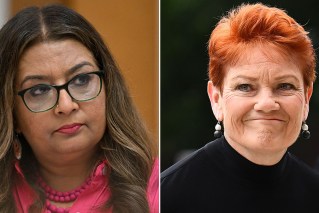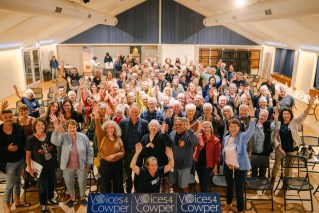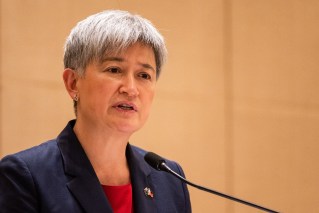Former chief justice slams ‘resentful’ anti-Voice campaign

Former High Court chief justice Robert French has blasted the anti-Voice campaign, saying its “don’t know, vote No” slogan is “a poor shadow of the spirit which drew up our Constitution”.
French also took aim at descriptions of the Indigenous Voice as a “Canberra bureaucracy” – a key argument of Opposition Leader Peter Dutton.
“It invites us to a resentful, uninquiring passivity. Australians, whether they vote yes or no, are better than that,” he said on Friday.
“No doubt, members of the Voice will meet and carry out their core function of making representations etc in Canberra. But they’ll be selected from Aboriginal and Torres Strait Islander peoples from right across the country.
“If this is a Canberra bureaucracy, what’s parliament – which unlike the Voice has decision-making powers – but a species of Canberra bureaucracy on steroids?
“Terms such as ‘Canberra bureaucracy’ weaponise words by distorting their meaning in a way that is unhappily characteristic of public, political discourse today.”
French, who led the High Court for nine years until 2017, outlined his views in a speech to the National Press Club in Canberra on Friday in a bid to dismiss fears the advisory body will invite multiple legal challenges.
He declared it “constitutionally sound”, saying the third clause of the amendment means the body could not overpower parliamentarians.
The clause says “the parliament shall, subject to this Constitution, have power to make laws with respect to matters relating to the Aboriginal and Torres Strait Islander voice”.
This meant politicians would be able to decide who made representations and how they were made, French said.
“As an advisory body, there is little or no scope for successful litigation associated with its work,” he said.
“Neither parliament nor the executive can be legally bound by the constitutional change to do what the Voice may suggest.”

Former Chief Justice Robert French says the Voice would not be legally binding. Photo: AAP
French also took aim at the idea the Voice would divide Australia by race. He said it wouldn’t matter whether Aboriginal and Torres Strait Islander peoples were one race or dozens of different races.
“The Voice is not a race-based institution,” he said.
“At federation there were hundreds of different Aboriginal languages spoken across Australia. The unifying characteristic which underpins the Voice is their history as our First Peoples.”
But his speech fell flat with Liberal senator Kerrynne Liddle who said legal minds had differing views about the broadness of the wording in the Voice amendment.
“What was really clear from [a parliamentary committee] was that the risk seemed to be unquantifiable,” she told ABC TV.
The South Australian senator argued the government had ignored those concerns and pushed ahead with the wording.
“It is not just the question that people are being asked, it is about the impact of the words on the Australian constitution and by default, the Australian people,” she said.
Meanwhile, Prime Minister Anthony Albanese said there was a lot of misinformation about what the Voice would do and what it would cost.
He said it would bring people together, would not divide the nation and would save taxpayers money.
“This will actually save money,” he told Brisbane radio station B105 on Friday.
“What you’ll get if we listen to people is more efficiency, you’ll get the dollars going to where they should go.
“This is about helping a group of Australians – 3 per cent of Australians – it won’t have a direct impact at all on non-Indigenous Australians directly.”
Asked by a listener if creating a specific body for Indigenous Australians in the constitution would divide the nation, Albanese said it would not.
“The idea of this is to work together to bring the country together,” he said.
“If it comes up with a good idea, then governments should adopt it … when we listen to people who are directly affected by an issue, we get better outcomes.”
But Dutton continues to argue the proposal lacks detail and that people who want to help Indigenous Australians will be forced to vote “no” if their questions go unanswered.
“It just makes people, I think, more reluctant – tradies and others who are saying, ‘I want to help Indigenous people but the Prime Minister is not putting the detail out there, so I don’t understand it, I am not voting for it’,” he told Nine’s Today program.
If the referendum succeeds, the Voice would be a permanent but non-binding advisory body that would be able to make representations to the parliament and the government.
The referendum will be held on October 14.
– with AAP







